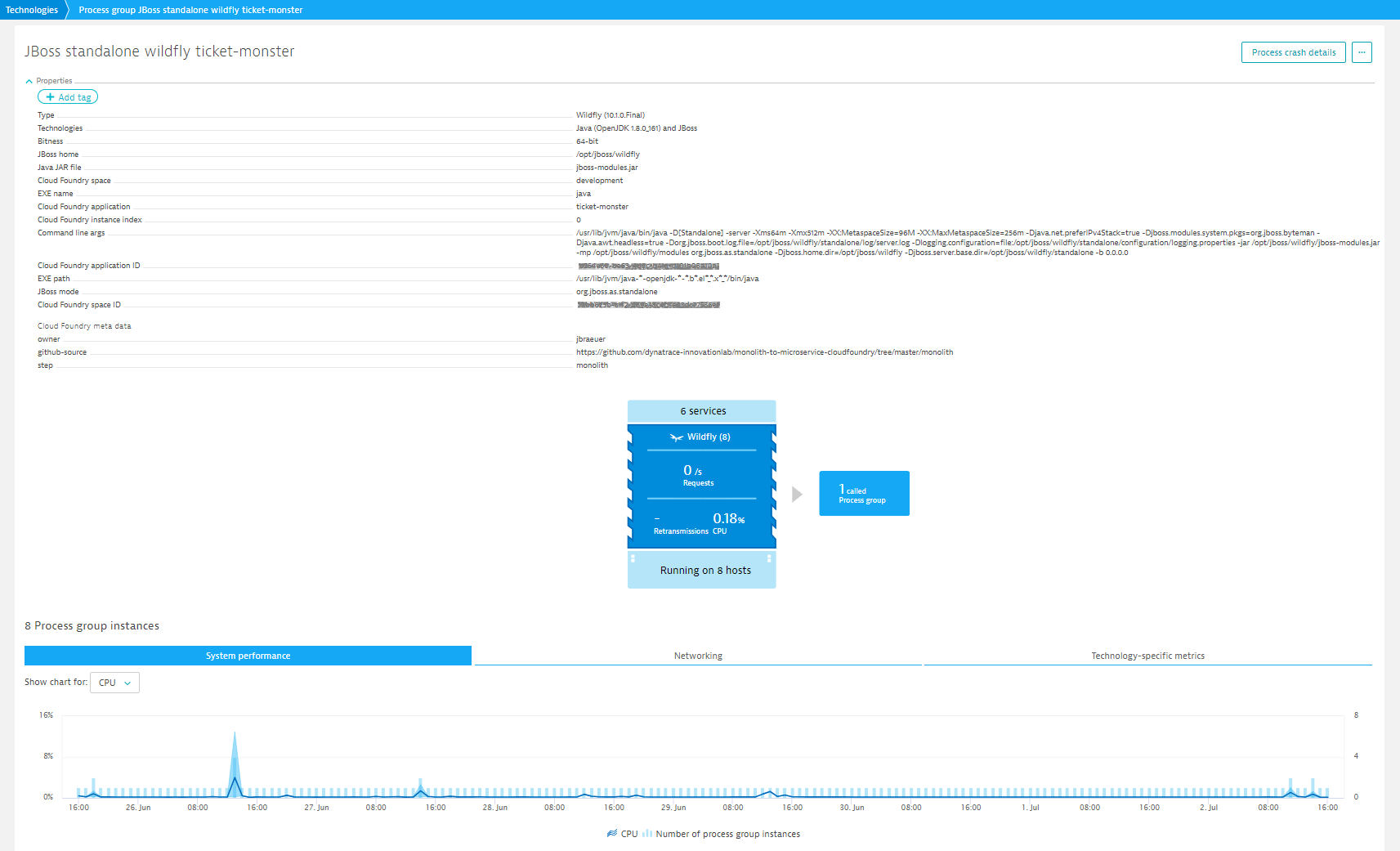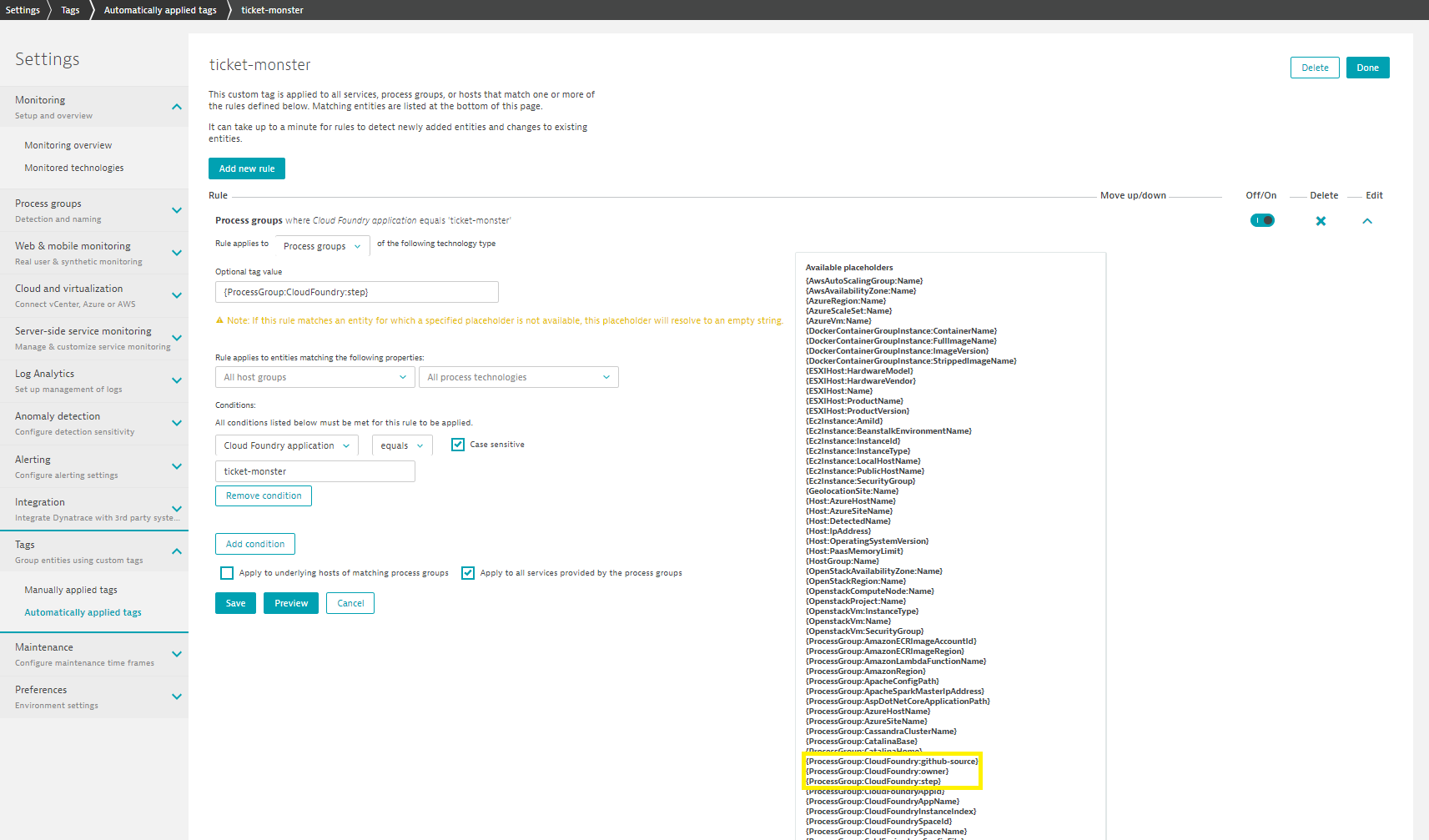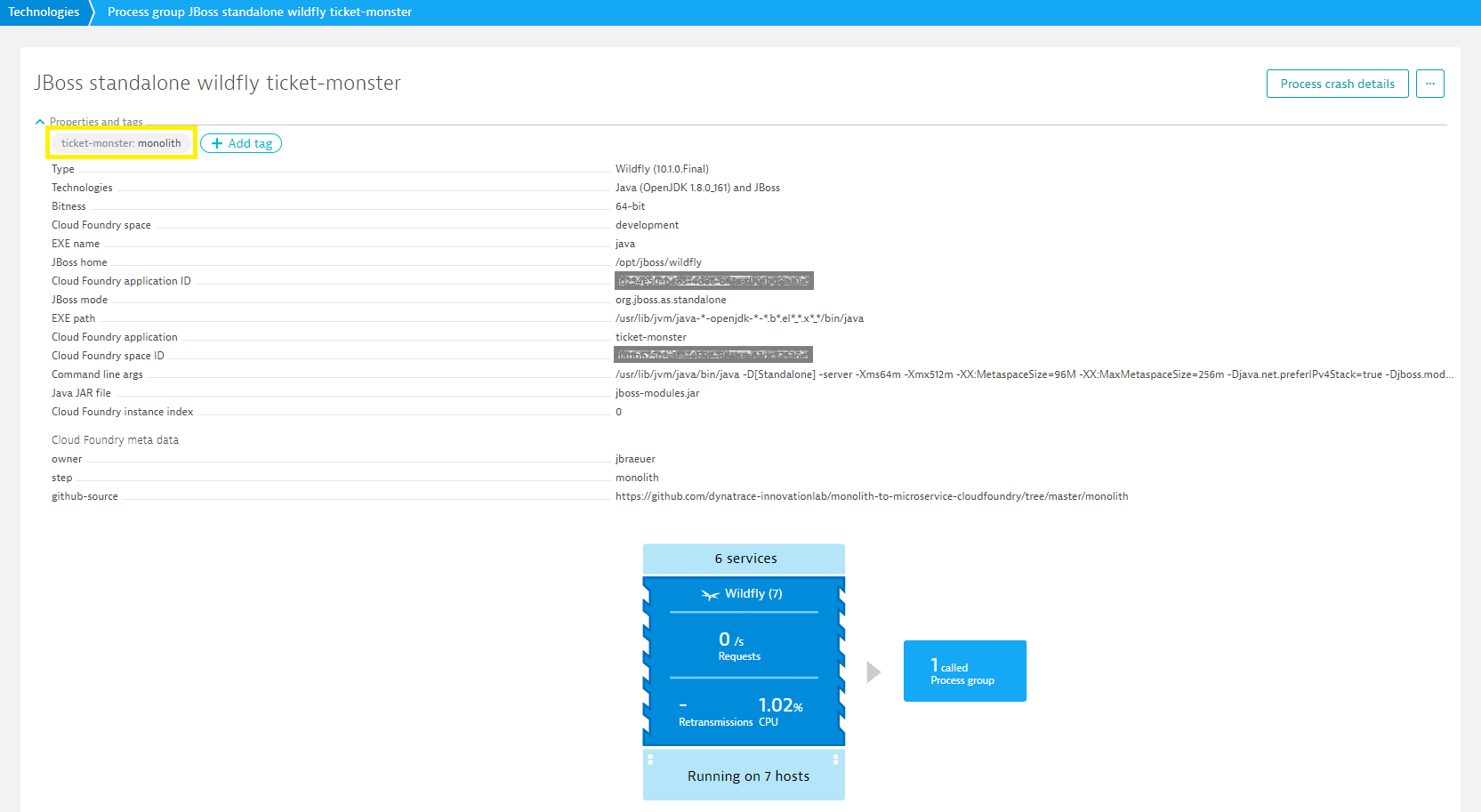Out-of-the-box, Dynatrace automatically detects and displays lots of metadata values related to the processes that run in your environment. Dynatrace also allows you to define your own metadata based on your organization’s or environment’s unique needs.
As of today, Dynatrace also supports you in defining your own process group properties via any user-provided Dynatrace Cloud Foundry service that’s bound to your application. This capability allows you to add information about, for example, the owner or GitHub repository of a Cloud Foundry application. You can also add version information related to the application itself or used Cloud Foundry buildpacks.
Define Cloud Foundry service metadata for multiple applications
To define your own process group metadata, you can leverage one or more Cloud Foundry service instances that have the name dynatrace as a substring. For example:
cf cups dynatrace-metadata -p "meta-data:owner"
You’re automatically prompted to provide values for certain metadata (for example, meta-data:owner>jbraeuer).
You can easily update your user-provided Cloud Foundry services with new values, for example, meta-data:owner>drabiser or additional metadata:
cf uups dynatrace-metadata -p "meta-data:owner, meta-data:github-source, meta-data:step"
If your monitored Cloud Foundry application is available on GitHub, you can easily add a link to the respective GitHub repository using custom process group metadata. As shown in the example below, we’ve specified custom process group metadata for a sample monolithic application called TicketMonster (you can read up on this in the blog post Fearless Monolith to Microservices Migration – A guided journey by Johannes Bräuer). We’ve added the GitHub repository link of the TicketMonster application as a github-source property and we’ve also identified the application as the monolithic starting point for the “break-up journey” towards a microservices architecture.
If you’re leveraging Cloud Foundry buildpacks to integrate Dynatrace OneAgent into your application, specifying the buildpack version that was used to deploy the application can be helpful in understanding the features that are available as part of a buildpack release.
cf cups dynatrace-apps-only-metadata -p "meta-data:buildpack, meta-data:version"
If you’d like to compare the behavior of two application versions in a Blue-Green deployment, you can also use custom process group metadata to identify different application versions.
Please note, to exploit the service instance dynatrace-metadata (or dynatrace-*-metadata) you must bind the instance to your application (for example, ticket-monster):
cf bs ticket-monster dynatrace-metadata
Use custom process group metadata for organizing your Cloud Foundry applications
You can use your Cloud Foundry process group metadata as a placeholder when creating automatically applied tags (as shown in the example below) or for process group naming. The rule-based tag below will be added to the monolithic TicketMonster app and all related services. In this example, we’ve defined the custom process group meta-data:step>monolith to be the tag value.
Stay tuned
We’ve many great new capabilities planned for Cloud Foundry monitoring with Dynatrace. For instance, Dynatrace will soon detect additional BOSH instance metadata for BOSH-managed VMs. Further, you will soon be able to fully benefit of management zones and host groups to manage your Cloud Foundry foundations. So stay tuned!
In the meantime, let us know how you’re using custom process group metadata for enriching your monitored Cloud Foundry applications. Please share your feedback with us at Dynatrace Community.








Looking for answers?
Start a new discussion or ask for help in our Q&A forum.
Go to forum